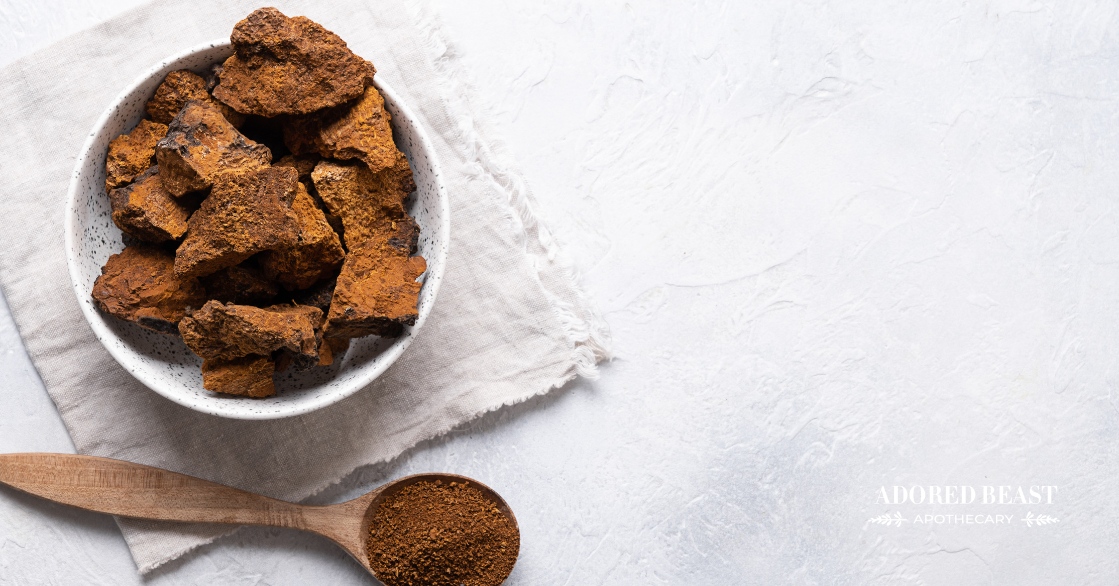Have you heard of chaga?
What is it?
There’s a big push in the natural health world right now towards mushrooms – and for good reason. Used for centuries in traditional medicine, mushrooms have a wide range of benefits for people and animals.
Does that include chaga for horses? And if so, how can our equines benefit?
What is Chaga?
Chaga is a medicinal mushroom that grows on the bark of the birch tree.
It was used as long ago as the 12th century by Russian and Siberian medicine people. More recently, it has been studied for its unique and significant health benefits. This mushroom has not been widely studied in horses yet but the research in humans is growing. Due to its affinities for specific diseases such as diabetes, insulin resistance (IR), and gut disease, it shows promising benefits for horses who also suffer from similar issues.
Research on chaga for humans and animals is plentiful and the benefits include:
- Gut health and ulcers – specifically, it has been shown to enhance the microbiome and bowel health by providing highly beneficial prebiotics known as beta-glucans. It has also been shown to reduce inflammation and ulceration in patients with inflammatory bowel disease. Since gut inflammation and ulcers are so common in domestic horses, this special fungus is worth adding to their herb rotation.
- Antioxidant properties – chaga has been shown in several studies to inhibit oxidative DNA damage – particularly useful for aging horses.
- Immune system health – chaga shows an ability to help modulate immune function, bring inflammatory markers in the blood down when elevated and bringing the immune function up if it is low.
- Cancer – chaga has been extensively studied as a cancer treatment and has been shown to down-regulate cancer markers for colon cancer, breast cancer, and skin cancer (melanoma). Melanomas are particularly common in certain colors and breeds of horses with light colored skin.
- Diabetes and insulin resistance – chaga has also been shown in one study to improve insulin sensitivity in type 2 diabetes. Since insulin resistance is such a common issue in aging horses, it’s worth considering for this issue.
To see a full list of research we’ve compiled on chaga, click here.
How to Use Chaga for Horses
The best way to give chaga to horses is either as a tea, a powder or a liquid extract.
Tea – this is my preferred method of giving chaga to horses. Simply brew one tea bag in a large pot with 5.5 litres of water and brew. I use the tea (about 1-1.5 liters per day is good) to soak my horses’ hay cubes and beet pulp. They usually love the earthy taste!
Powder – powder is another option that you can use for horses but it’s best if you can get it in a micronized form to ensure the medicinal benefits are accessible to your horse. I recommend 10-20 grams per day.
Liquid Extract – Liquid chaga extracts, when double extracted with water and then alcohol, have the added benefit of triterpenoid compounds that can only be extracted by alcohol, not water. If your horse has a serious illness such as cancer, you may wish to consider using the extract. 2.5-3 tsp daily is a great place to start but you may consult a professional to discuss how much is appropriate based on your horse’s individual situation.
For healthy horses: consider rotating your horse on and off of chaga every 6 weeks. You could also consider rotating with other medicinal mushrooms such as turkey tail for even more health benefits.
For horses with health challenges: consult an integrative equine vet or other professional for exact dosing.












